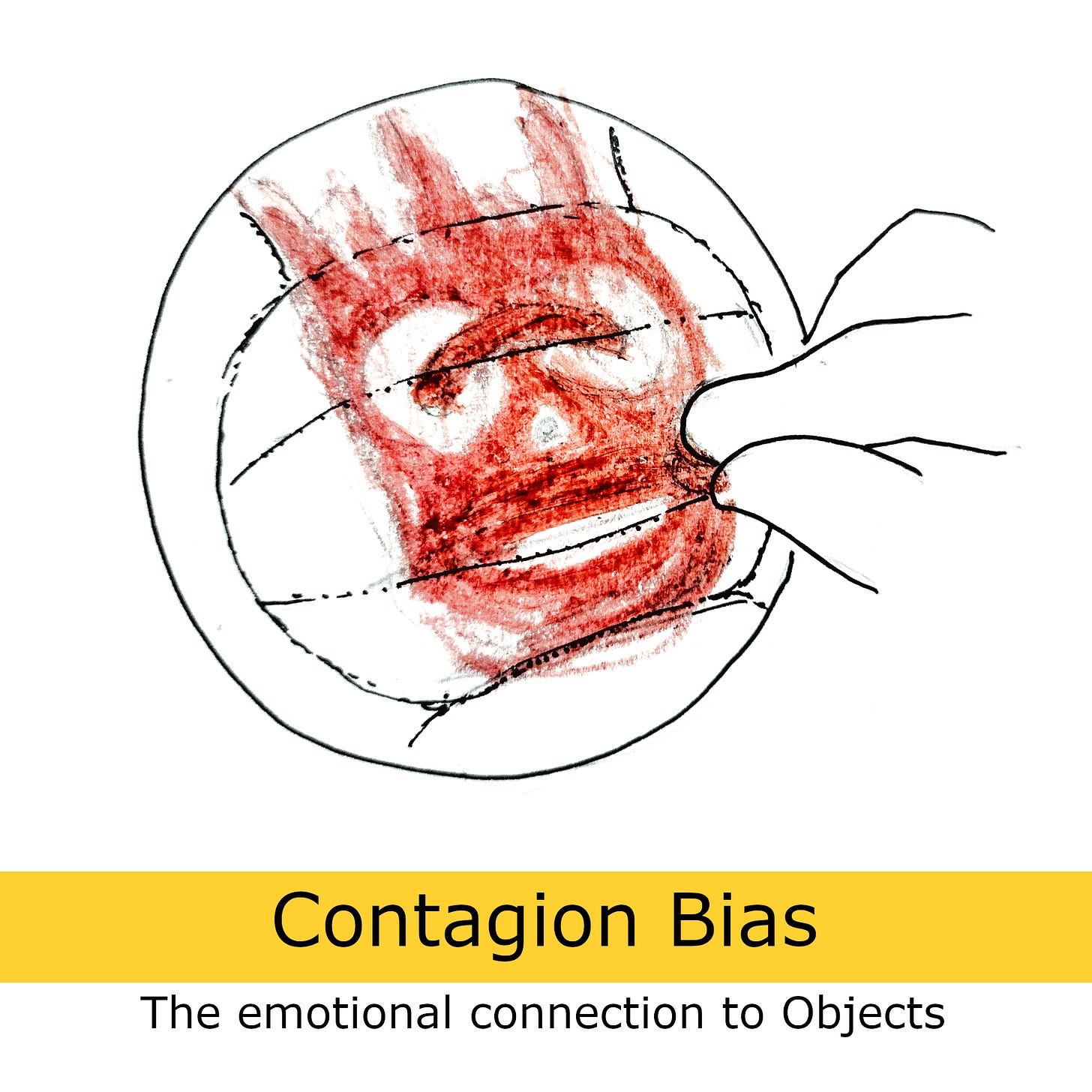The Flaws In Your Thinking
Visuals for "The Art of Thinking Clearly" - Part 6
I hope this finds you well.
And I hope you are not offended by me pointing out that your thinking is flawed. I know mine is too, it just more fun to talk about your shortcomings.
Just kidding :).
We are learning together about our human cognitive biases using simple illustrated summaries of the 99 cognitive biases presented in the book “The Art of Thinking Clearly” by Rolf Dobelli. This is the sixth of a series of 10 posts.
If you haven't followed all, you can look at my last post, or start fresh:
Don’t forget to subscribe to not miss the next ones, if not done already!
And now enjoy those biases, as always thanks for the interest and looking forward for your feedback 🙂:
Hyperbolic discounting
Picture this: You're offered a choice between $50 right now or $55 in 3 months. What would you pick? Many people, would go for the $50 now.
Our brains are wired to crave instant gratification, so we tend to prefer immediate rewards over larger ones in the future.
Justification Bias
Giving a reason, any reason, no matter how weak, make people more likely to agree or comply.
Decision fatigue
Throughout the day, as we make decision after decision, our brain gets tired, just like a muscle after a workout. When we’re worn out from all the deciding, we start making poorer choices or avoiding decisions altogether.
Contagion bias
Would you wear Hitler’s sweater? The contagion bias make us feel connected to some items, it can also push us to avoid objects (or people) that have been “contaminated” by something bad.
Problems with averages
Averages don't tell us about the underlying distribution (the spread of values).
For example, the world’s wealth distribution represented in the drawing try to show that even if the average wealth is 84K, the majority of people have way less, and the average is skewed by the richest 1,2 % that have hundreds of trillions.
Motivation crowding
Money rewards can backfire by reducing an originally intrinsic motivation.
For example rewarding kids with money for academic achievements can remove the joy of learning, replacing it by a far-less sustainable motivation.
Twaddle tendency
The twaddle tendency is when someone uses lots of fancy words or long-winded explanations to make themselves sound smarter or cover up the fact that they don't really know what they're talking about.
Will Rogers phenomenon
Imagine you have two groups, one slow and one fast, racing at the same time.
You're lagging behind in last place in the fast group, but suddenly, you have an idea: "Let me join the slow group!" Now, you're in first place—congratulations!
On top of that, the average speed of both groups increased. Genius!
We see a lot of this clever switching in large corporations trying to show better results without actually making any real changes.
Information Bias
Sometimes, too much information cloud our judgment instead of clarifying it.
Looking at data too often can also make us mistake “noise” as signal, making us overreact.
And with those, let me not contribute to the information overload and conclude this post :).
If you liked it, please sharing it around, it is very much appreciated!
Let me also know what you thought of those biases, do you have a favorite (one that you often see, or you find particularly interesting) ?
Cheers!
The next part is here! Click Below
Your thinking? Still flawed!
We are back to exploring our cognitive biases after taking a short detour to discover 'Transactional Analysis' through the book 'Games People Play'. You can find the illustrated summary of that book below: We are now in the second half of the 99 cognitive biases described in the book “The Art of Thinking Clearly” by Rolf Dobelli. If you missed some parts…












